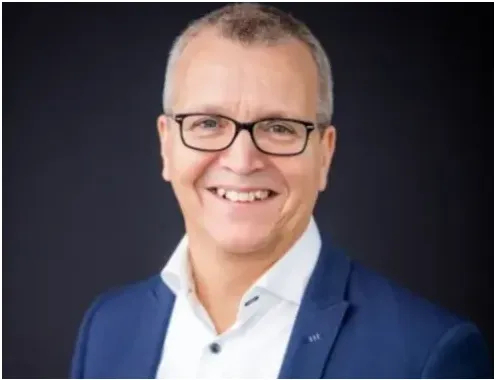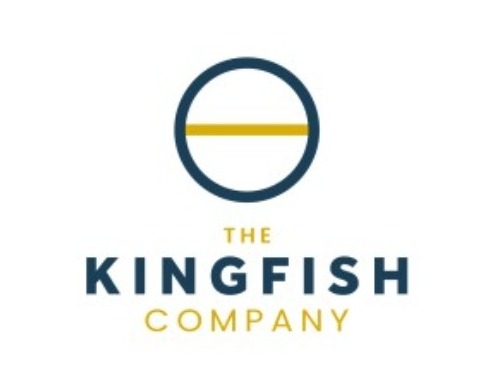Ronald Peereboom - Group Head of People & Culture at The Kingfish Company


Ronald Peereboom is the Group Head of People & Culture at The Kingfish Company in the Netherlands. He started his Human Resources career in 1994, before becoming Global HR Director and Corporate HR Manager at Provimi. He has since worked at Cargill, Nutreco, and Hilton Food Group.
What excites you about working for your current organisation?
The sustainability part of the scale-up is really exciting and, to be honest, what we are doing is also really awesome. I won’t go into the details, but our product is the beautiful Dutch Yellowtail kingfish (seriola lalandi) and our integrated process runs from (fish) egg to plate in a sustainable manner. We breed our fish on land through RAS (Recirculating Aqua System) techniques, using fresh water from the Ooserschelde. After use, the water is discharged back into the Oosterschelde, filtered and cleaned. Take into mind that the Oosterschelde is a national park, and we really have to undertake a lot of action to ensure a clean water discharge. As such, we have certificates from various aqua organisations that monitor our way of working, of which we are very proud.
I knew from an HR point of view that there was a lot to do or that needed to be done, amongst others: recruitment, retention, leadership and communication, but also day-to-day HR operations. Much needs to happen, and today’s solutions do not fit tomorrow's requirements (start-up to scale-up to maturity level and our further growth/expansion plans abroad), so we have to be flexible and every now and then refigure everything - that's where the challenges are.
On the other hand, there is a lot of freedom to act within Kingfish and we don't want to smother the entrepreneurship. So, upkeeping the entrepreneurship whilst introducing (more) processes and procedures seems to clash from time to time. How fun is it to find the balance!
Another exciting challenge is that the culture is pretty diverse, because the company is continuously changing. A culture change comes in play with about every 30 new employees (within smaller companies, of course). When I joined, we were around 90 people, now almost 150, meaning we’ve organically switched culture a couple of times. Then there are the groups of employees from different countries that do not speak either Dutch or English (Polish, Romanian and Spanish), which in turn creates different pockets of culture, as well.
During the job interview, the CEO indicated that internal communication was lacking and needed a solution. Getting notices and publications to everyone in the company is not a stroll in the park. How to tackle this? After joining, I asked our HR tech-savvy intern to create a Kingfish app that will be downloadable through Google Play and from the Apple Store. The push notifications will come through on the app, and employees will be able to see all internal communications, the invitation for the (alcohol-free) Friday afternoon drinks, the upcoming Town Hall or register for the Kingfish Family Day. These kind of topics also keep my engine running.
You mentioned that retention may be one of your biggest challenges over the next 12 months. Have you started to build strategies to tackle some of those challenges?
As a scale-up, we are constantly on the move. We are learning by doing. The hiring process is being adapted in such a way that we are now focused on the personality of the individual and how he/she/they will fit in the team, rather than the skills. It sounds obvious, I know, however, that was not the case in the beginning, which has led to a high outflux. Over the last months, we are seeing the number of employees that are leaving decreasing. So, a good selection at the gate contributes to a better level of retention.
In November, we ran an employee engagement survey. The engagement survey provided a lot of suggestions for direction, which will contribute to retention. These actions are related to communication, decision making, leadership, culture and values, but also more tangible topics in the area of benefits.
From a retention view, we are introducing job levelling and looking at all the positions across the departments. We will then put salary bands against them, introducing career paths. Originally, we had one level of Operator, but now we have a Junior Operator, an Operator and a Senior Operator. This provides a career path and advancement for those who stand out in the crowd. We also have various departments that require Senior Operators, and we are now moving them around so they are not stuck in one department. A lot of good is coming from that.
Being located in Zeeland has its challenges, as well. Of course, there is talent here, but we see that most of our talent comes from abroad or lives over two hours away. To accommodate these talents, we are renting a number of houses and apartments in the vicinity and making sure there is a soft landing and a good onboarding. And then there can be significant cultural differences. So, some communication, coaching and leadership skills need to be addressed. We are not yet at our final destination for the full 100%, but getting there.
How have you seen HR evolve and do you think developments in technology will change the function in the future?
I’ve been around quite a while and have seen many changes. I do think that AI [artificial intelligence] is going help us tackle certain topics, but is not the golden egg. ChatGPT will be the creator of job profiles and postings, can do some research on HR hot topics, create software and apps for HR needs, and so on. Of course, we will need to look at digitalisation as a connected universe and related privacy laws, and there is no turning back. AI will mostly free up time, as some of the operational and admin stuff will be AI-ed. Due to the use of AI, roles will disappear and new (digital and data-driven) roles will surface. But that has also been the case since the beginning of the industrial revolution.
So, the future of HR will for sure integrate with AI. Initial interviews will be taken through AI, directly linked to simplified online assessments that will generate questions and match the hiring team. This approach will be used for almost all roles, due to cost effectiveness, including those roles that we normally do not provide assessments for.
I recall working with an assessment organisation in Paris - they do a lot for a large beer manufacturer - and, once a year, this beer manufacturer initiates a large, global management trainee program. They get over 5,000 applicants for five trainee slots! Can you imagine the time that will be saved when AI performs all these interviews, in combination with assessments?
Looking back over your career, is there anything that stands out as one of the proudest achievements so far?
The most energy I got was when working at Provimi. I joined the company in 1998 and, at that moment in time, there were 4,000 employees within 11 standalone operating companies in nine countries. However, until then, there had not been any HR structures, processes or procedures in place. No HR at all! Some of the OpCos [operating companies] had a local HR administrator or payroll person, others had secretaries taking care of HR. Starting from scratch, and with no experience in an international setting, I started putting HR topics in place: comp & ben [compensation & benefits], performance management, succession management, fleet management, expat management, L&D [learning & development] and much more, and loved every minute of it!
Throughout the Provimi years, we were de-listed from the French Stock Exchange, we prepared for an IPO [initial public offering], but - before going public - there was a hostile takeover by Fiat, then sold off to CVC/PAI (private equity), then sold to another private equity company (Permira), and ultimately to Cargill. Quite a fantastic ride with continuous change of ownership and the HR agenda.
It was a quantum leap in my own personal and professional development. And I believe that one should take bigger steps than what you think you should be taking – of course, being realistically bold. I would say that these were my proudest years.
If you had not taken the HR route, is there a different career path that you might have explored?
If it wasn’t HR, then it would be something totally different. I really like being creative and I tend to think that I would have gone into Architecture or something else with a creative aspect.
At Provimi, I approached the COO [Chief Operational Officer], requesting if I could join his team or be his assistant, because I really liked what he was doing from a day-to-day and from a strategic perspective. HR is very broad insights of many aspects of the company, but as COO he knew even more, and I'm probably too curious for my own good.
Are there any people in your life that you particularly admire?
Yes! I was running HR on my own for the Provimi Group and, in my opinion, doing a pretty good job. When Permira acquired Provimi in 2007, a new leadership structure was put in place, including the introduction of the position of CHRO. Stijn Steendijk, coming from Unilever, became the CHRO within Provimi.
I had done five years of pioneering in HR and I felt I knew what HR was. And I wasn’t happy that someone from outside was coming in. But the way that he worked, how he communicated, and how driven and hungry to achieve things he was, and probably still is; it was like he was running a marathon while I was still at training camp. So yes, I learned really a lot from him.
Are there any books, blogs, or podcasts that you enjoy that you could recommend to people?
I’m not ashamed to say that I hardly read anymore. I watch vlogs [video blogs] or listen to podcasts. For example, to Ben Tigchelaar, who does a lot on leadership, behaviour and management. I do this on Friday afternoons, taking an hour, sometimes two, to cruise the internet for interesting TED talks or LinkedIn learnings about what’s new and happening in the HR world or on leadership.
My team is not to have any meetings before nine, after four or between 12 and one. They need time to get to the office, to start up and have coffee corner and hallway talks. If you have a meeting from four to five and someone needs to leave at five sharp, he/she is looking at the clock and is not participating anymore. Also, enjoy the lunch break, go for a walk, or do something not work related and relaxing.
I recommend to all my HR team members to do the same. Take a Friday afternoon - if you don’t work on Fridays, take Thursday afternoon - and make sure that you hear what’s happening in the outside world within the HR arena. You don’t have to apply what you hear; it is to educate yourself as a professional and expand your knowledge. And, who knows, you might hear something that could be a value add for your company!
Thank you to Ronald for speaking to Katie Insley, Associate Director in our Human Resources recruitment team in the Netherlands.
Views and opinions contained within our Executive Interviews are those of the interviewee and not views shared by EMEA Recruitment.






You can also use your social account to sign in. First you need to:
Accept Terms & Conditions And Privacy Policy